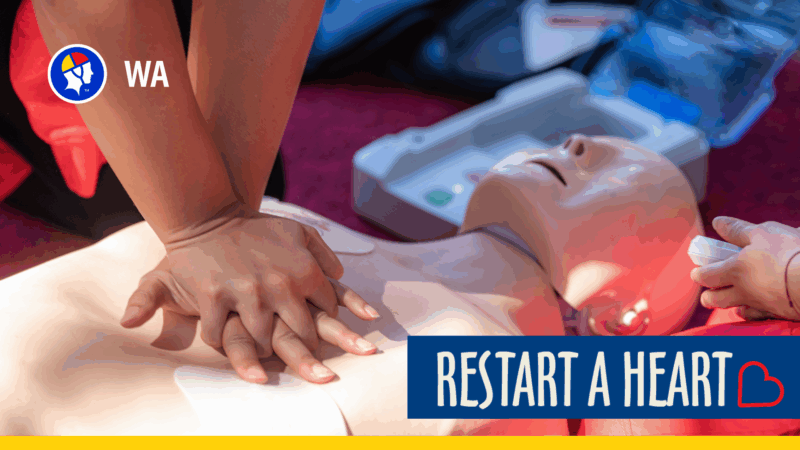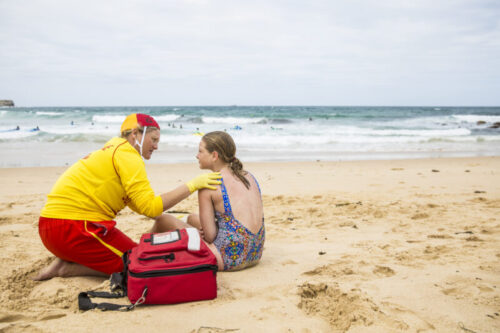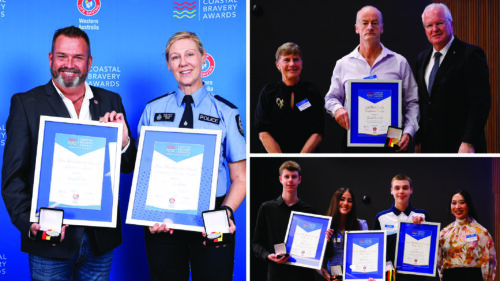
You’re at home, at work, or even just walking down the street, when a person suddenly collapses. They’re not breathing, and they’re unresponsive. It’s a cardiac arrest. In that terrifying moment, would you know what to do?
Unfortunately, this isn’t a rare emergency. In Australia, over 26,000 people experience a cardiac arrest outside of a hospital each year. That’s a staggering number, and here’s the frightening part: only about 10-12% survive.
A cardiac arrest can happen as a result of many factors, including drowning, a heart attack, or trauma. Which means it could happen to anyone!
The reality is, when someone’s heart stops, EVERY second counts. For every minute that passes without intervention, the chance of survival drops rapidly. Waiting for an ambulance, or for someone else who knows what to do, may not be quick enough. The truth is, you are the person most likely to be in a position to save a life.
CPR. The Power in Your Hands
Cardiopulmonary Resuscitation, commonly known as CPR, is an immediate, life-sustaining action that buys precious time until professional help and a defibrillator (AED) arrive.
The statistics tell an important story: bystander CPR can more than double a person’s chance of survival. A simple set of skills you can learn could be the difference between life and death for a loved one, a colleague, or a stranger.
And nearly 80% of out-of-hospital cardiac arrests happen at home, meaning the person you are most likely to use CPR on is someone you care about: a parent, a child, or a friend.
Why Accredited Training Matters
While any attempt at CPR is better than none, having the confidence to act comes from having received quality, accredited training. In a life-and-death situation, you don’t want to be second-guessing.
This is why getting certified through a recognised and reputable provider is essential. As a Registered Training Organisation (RTO), here at Surf Life Saving WA, we offer accredited CPR training that adheres to national standards. An accredited course ensures you are learning the latest, most effective techniques recommended by the Australian Resuscitation Council. You’ll get hands-on practice in:
- Recognising a cardiac arrest.
- Calling Triple Zero (000) immediately.
- Performing correct and effective chest compressions.
- Knowing how to use an Automated External Defibrillator (AED).
Learning CPR now could be one of the most important decisions you ever make. Make the time to equip yourself with the knowledge to respond confidently, because when a cardiac arrest happens, the person in trouble won’t have time to wait. Their life could be in your hands.
Find out more about our First Aid and CPR courses here, or reach out to Training team to learn more.
Read More Articles
06 . 10 . 2025

Multiple incidents at WA beaches prompt safety warning
Following one of their worst seasons on record, Surf Life Saving WA is pleading with beachgoers to exercise caution as they head back to the coast following multiple incidents that […]
Media Release
21 . 08 . 2025

First Aid Courses in Perth: Why Experience and Community Trust Matter
When it comes to choosing a first aid course in Perth, there are many providers to pick from. The real question isn’t just “where can I book a course”? — […]
Blogs
11 . 08 . 2025

Heroes recognised at awards ceremony
Last Friday, Surf Life Saving WA recognised 37 individuals for their acts of bravery performed on the West Australian coast. Held every two years, the Coastal Bravery Awards pay tribute […]
Media Release, Safety & Rescue
